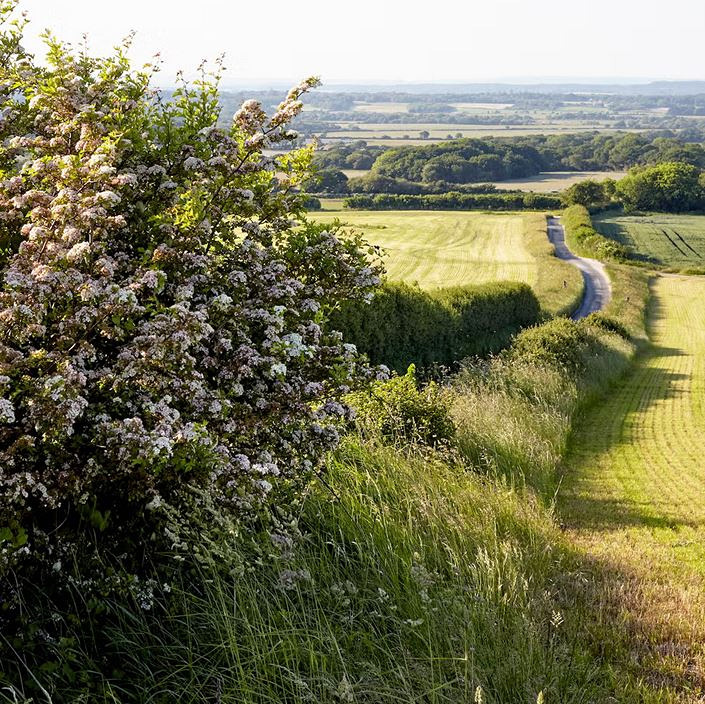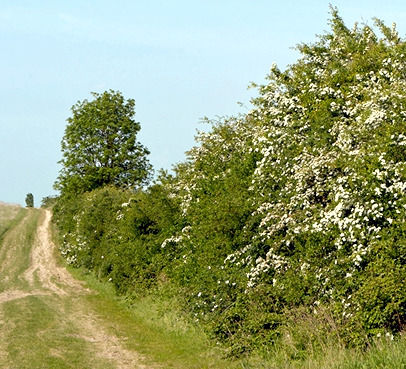Hedgerows & Hedges

According to data derived from the UK's National Forest Inventory (NFI), managed by from Forest Research, the UK has approximately 452,000 kilometres (281,000 miles) of hedgerows. Overall, linear woodland features, including hedegrows and linear woodlands such as those lining roads and rivers, amount to about 164 thousand hectares, from which it will be seen that they represent a huge natural, or at least semi-natural resource.
From an agricultural point of view, although they are now widely superseded by wire fencing, hedgerows still serve both to contain livestock as well as protecting arable crops from unwanted grazing. In addition they delineate field and property boundaries, they provide shelter for livestock from wind, and shade from the sun (a factor that is likely to increase in importance with climate change).
But apart from marking field boundaries and being a defining feature of the British countyside, what else do hedgerows do? For further information and discussion of hedges, see the articles accessed from the links below:
Hedgelink provides a valuable resouces for informaton on all aspects of hedges - Click HERE
Grants and other incentives are available for farmers and other landowners
to provide support for the planting and maintenance of hedgerows and hedgerow trees: Click on the links below:

Hedgerows and the Law
Most rural hedgerows are protected and cannot be removed without planning permission and even then, permission is only likely to be granted if the hedge is less than 30 years old. Goverment guidance about on hedgerow protection and what you can and can't do can be found HERE.
If you believe a hedgerow is being illegally removed, you should report it to the police. You can do this via their online crime reporting system HERE, or call 101. If the removal is in progress you should call 999.
The concern around cutting hedgerows relates to the disturbance of wild birds. It is illegal to intentionally disturb, harm or kill wild birds and it is illegal to intentionally or recklessly disturb or damage a nest. Natural England says: “the main bird breeding season is recognised as being between 1 March and 31 July. Therefore the risk of committing any of the above offences is increased between these dates. It is recommended that if you undertake any work within these dates you should check the hedge for any signs of breeding activity first (such as observation from a distance using binoculars and direct searching of the hedge for nests).”
Full details: https://hedgelink.org.uk/cms/cms_content/files/489_hedges_and_the_law_updated_april_2015.pdf
If you suspect an offence is/has been committed in relation to wild birds then contact your local Wildlife Crime Officer via the online crime reporting system: https://www.westmercia.police.uk/advice/advice-and-information/wc/wildlife-crime/ or call 101. If the disturbance is in progress you should call 999.
